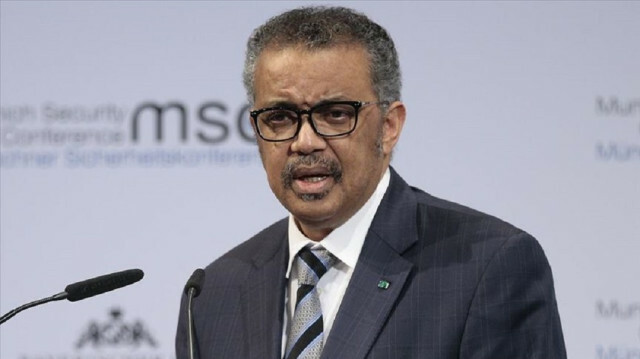
Tedros Ghebreyesus says Afghan health system on brink of collapse, and in talks with Taliban, he stressed need for girls' education
After a trip to Afghanistan this week, the World Health Organization chief met the Taliban leadership in Kabul, warning Thursday that health gains in the country over the past 20 years are at risk, but engaging with the new rulers is essential for the Afghan people.
WHO Director-General Tedros Ghebreyesus said at a webinar in Geneva that Afghanistan's health system is on the brink of collapse and unless urgent action is taken, the country faces an imminent humanitarian catastrophe.
"The breakdown in health services is affecting the availability of basic and essential health care, as well as emergency response, polio eradication, and COVID-19 vaccination efforts," said Tedros.
In Afghanistan, the WHO chief met with senior members of the Taliban leadership, including the interim prime minister and UN partners, health care workers and patients, and staff from the health organization.
"I believe that engaging the Taliban leadership is essential if we are to support the people of Afghanistan," he said.
- 'Help in reopening girls' schools'
In discussions with the Taliban leadership, the WHO offered to support and accelerate the process of reopening high schools to girls in partnership with other UN agencies.
"The education of girls is essential for protecting and promoting population health, but also for building Afghanistan's health workforce of the future," said Tedros.
He said the focus of the WHO's efforts now is to support and sustain the "Sehatmandi project," the backbone of Afghanistan's health system, providing care for millions of people through 2,300 health facilities, including in remote areas.
However, because of a funding pause by major donors, only 17% of these facilities are fully functional, and two-thirds have stock-outs of essential medicines.
As a stop-gap measure, the UN Central Emergency Response Fund and the Global Fund to Fight AIDS, Tuberculosis, and Malaria are financing WHO and its partners to ensure continuity of health services for the next three months.
"But this is simply not enough," said Tedros, explaining that the WHO is calling on international donors to rapidly recommit to financing the Afghanistan health project as they had done for almost two decades.
"As you know, Afghanistan is also one of two countries in the world where polio remains endemic. There has only been one case of wild poliovirus reported so far this year, compared with 56 in 2020," he noted.
The WHO and its partners are ready to begin a country-wide house-to-house polio vaccination campaign and include measles and COVID vaccination in an integrated campaign.
"We reiterate WHO's long-term commitment to advancing the health of all Afghans and remind all stakeholders of our collective obligations today and in the months and years ahead," said the WHO chief.

